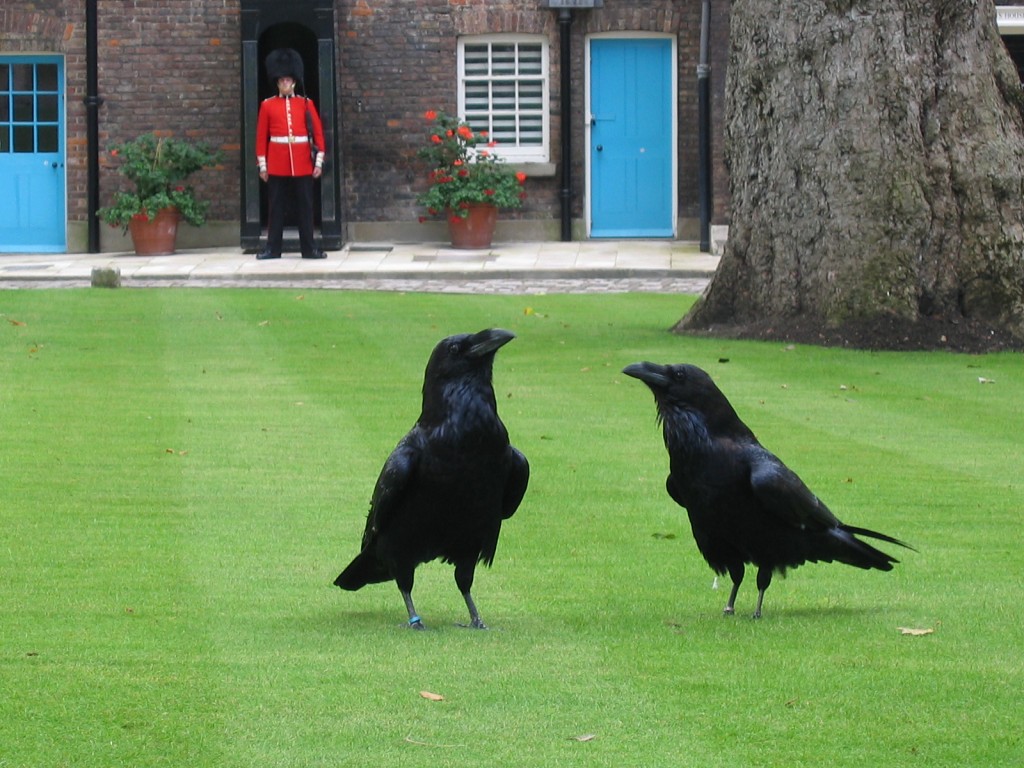The Tower Monster #2: A Contemporary Account July 16, 2015
Author: Beach Combing | in : Modern , trackbackThe very striking witness description of Swifte can, fortunately, be supplemented by a near contemporary account. This dates from January 1816: either Swifte got January and October confused or two soldiers (not one) died after seeing an apparition. The first possibility is surely more likely?
For some weeks past, a family residing in the Tower of London have been very much annoyed and disturbed by a variety of unpleasant and strange noises, heard in different parts of the house, during the night; and the sentries on duty at the door of the Royal Regalia, to which this house belongs, have frequently been disturbed by the most violent knocking, and (according to their account) even deep and hollow groans have been heard; and the feeling of superstition having spread very much among the soldiery, with whom the ghost is now a cant phrase, an additional sentry has lately been placed on the rampart immediately over the mysterious spot, and every possible exertion used by the occupier of the house, towards elucidating the cause of the disturbance.
The family is presumably (?) Swifte’s, though note that he made no reference in 1860 to noise in the building or a haunting. He did reference an extra sentry.
Officers of the garrison have watched for whole nights; nothing but a continuance of the noise was heard, but no visible cause discovered, until late on the night of Thursday last, the inhabitants of the Tower were thrown into the greatest possible confusion, by the screaming and roaring of the sentry stationed at the door of the Regalia depot, and the turning out of the guard, which, upon repairing to the spot, found the soldier extended upon the pavement in a senseless state. He was immediately carried off to the guard-room, and when sufficiently restored to his senses, positively affirmed, that whilst upon duty, a small figure crept from under the door at which he was stationed; and gradually made its approach to him, at the same time changing its appearance to that of a human being, and afterwards into that of a dog. These sudden transformations so completely affrighted the soldier; that after alarming the neighbourhood with his bellowing, he fell down senseless.
Remember that Swifte claim that a bear (a small figure?!) came from under the door: this is also there in a later account we’ll come to in part three of the Tower Monster. This series of transformations is closer to English folklore.
Nothing was seen by the soldier placed on the rampart, and the most rational conclusion is, that imbecility of mind has in this case been worked on by the ridiculous and absurd tales of the ghost, with which, most probably, the poor fellow’s weak brains has been crammed; and certainly no rational person can say that doubling the sentries for such reasons as in this case, tends much to assure the uneducated mind of such fallacies, as it appears this soldier has fallen a martyr to. At the same time it is absolutely necessary that proper methods should be resorted to, to clear up the mystery with which it is at present enveloped; although there is very little doubt but that in a building so ancient as the one in question, containing numerous passages and blocked up apartments, loop-holes, and crevices, Boreas occasionally gives a concert, in which he is most musically accompanied by all the bats, and consequently the many cats of the garrison.
Beach doesn’t get this last sentence. However, the journalist rounds off with an interesting account of another sentry scare twenty years before. The implication and very probably the correct one is that the sentry went awol.
We understand that about twenty years ago a similar alarm prevailed in the Tower, upon the presumed appearance of a ghost in nearly the same spot The sentinel of that day on duty was missing, and the next morning was apprehended at Turnham-green as a deserter. The account which he gave of himself was, that a spirit had caught him up in its arms and carried him through the air; and that all that he recollected of his voyage was, that in passing over St Paul’s church, he struck the cross with his heel. The spirit, however, did not attend the Court Martial to substantiate this statement, and the man was sentenced to, receive, and did actually receive, 300 lashes as a deserter.
Other thoughts: drbeachcombing AT yahoo DOT com
20 July 2015 KMH and RR point out that Boreas is the god of the wind: in the words of RR ‘With regard to the passage which you were unable to understand: “Boreas occasionally gives a concert, in which he is most musically accompanied by all the bats, and consequently the many cats of the garrison.” The author was most likely ridiculing the testimony by stating that “the wind did it”. Boreas was the Greek god of the wind.’ Thanks!



